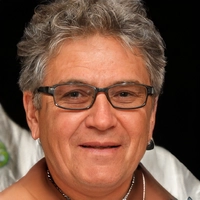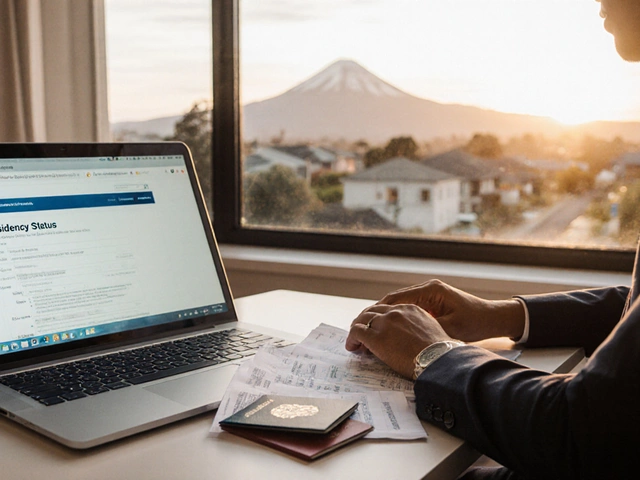How Much Do Beginner Real Estate Agents Make in Florida? 2025 Pay, Splits, and First-Year Income

Most new Florida agents do not earn a steady paycheck. Your first six months can look like a lot of hustle and zero income, then a chunky check arrives and covers the last few months in one hit. If you clicked here to get a real number, here it is: a typical full-time rookie in Florida nets low five figures in year one, and the ones who join a team and work a tight plan often clear the mid-five figures. The gap comes down to math, speed to first deal, and your split.
TL;DR: What beginners actually make in Florida in 2025
- Expect a wide range. Many first-year Florida agents take home 10,000 to 45,000 after expenses and taxes. A small slice does better; plenty earn less if they start slow or stay part-time.
- Florida has no state income tax, which helps. But you still owe federal income tax and 15.3 percent self-employment tax on profit.
- Typical deal math: 400,000 sale price x 2.5 percent side commission = 10,000 gross on your side before your broker split.
- New agent splits often run 50 to 70 percent to you. Team splits can be 50 percent to you but produce deals faster.
- Time to first check: 60 to 120 days is common after you start working daily. Many rookies see two to six closings in the first year if full-time with guidance.
- Start-up and fixed costs: 2,000 to 3,500 in year one between pre-licensing, exam, Association and MLS dues, lockbox, E and O, marketing, and a basic CRM.
- Benchmarks to gut-check what you read here: Bureau of Labor Statistics shows Florida agent pay clustered around the national middle; NAR data has agents with under two years experience earning modest sums, often under 15,000 gross, but that includes part-timers and people who never ramped. Your trajectory will depend on time invested, price point, and lead flow.
Search phrase you likely used: beginner real estate agent salary Florida. Short answer: there is no salary; it is commission, and your first-year take-home depends on how many closings you push through your split before taxes.
How agent pay works in Florida and how to do your math
Commission only. No base salary. No hourly. You get paid at closing. That is why cash flow feels awkward at the start.
Here is the simple stack to estimate your income.
- Average sale price: pick a realistic number for your target area. Florida hovers around the high 300s to low 400s. Use 400,000 for easy math.
- Total commission: commonly 5 to 6 percent, split between listing and buyer agents. Plan on 2.5 to 3 percent to your side.
- Broker split: as a new solo agent, you might keep 60 to 70 percent until you hit a cap. On a team, expect roughly 50 percent of your side in exchange for leads and structure.
- Cap: some brokerages cap the company dollar around 12,000 to 25,000. After you pay that much in splits, the rest of the year can be near 100 percent to you, minus small fees.
- Fees and expenses: budget 15 to 25 percent of your gross commissions for dues, E and O, lockbox and Supra, MLS, signs, marketing, lead gen, fuel, and software.
- Taxes: plan 20 to 30 percent of profit for federal income tax plus 15.3 percent self-employment tax. Florida does not add state income tax, which is a plus.
Quick formula you can run on your phone:
- GCI per deal (your side) = Price x Your side percent. Example: 400,000 x 2.5 percent = 10,000.
- Your split = GCI per deal x your split rate. Example: 10,000 x 70 percent = 7,000.
- Net before tax = Your split minus expenses. If you spend 20 percent on expenses: 7,000 minus 1,400 = 5,600.
- Take-home after self-employment tax (roughly) = 5,600 minus 15.3 percent of 5,600 ≈ 4,744. Then set aside more for income tax depending on your bracket.
Licensing and fixed costs in Florida you will actually pay:
- 63-hour pre-licensing course: roughly 150 to 350.
- State application through DBPR: around 80 to 90.
- Exam fee with Pearson VUE: roughly 35 to 40 each attempt.
- Fingerprinting and background check: 50 to 80.
- NAR, Florida Realtors, and local board dues plus MLS access: commonly 900 to 1,500 for year one, depending on your association.
- E and O insurance: 300 to 500 per year, sometimes paid through your broker.
- Lockbox and key service: 100 to 200 up front, plus monthly or annual fees.
- Signs, cards, basic marketing stack: 300 to 1,000 to start.
Sources worth trusting for the framework above: Florida DBPR for licensing and fees, your local Realtor association for dues, and the Bureau of Labor Statistics for pay distributions by state. NAR Member Profile illuminates how experience level affects income.

Real first-year scenarios in Florida: part-time, team, solo with a cap
You clicked for numbers, so here are three clean scenarios with realistic splits and costs. Each assumes 2.5 percent to your side of the deal, which is common. If you mostly work listings in your farm and set 3 percent, your numbers go up. If you take referral deals with a 25 percent referral fee on top, your numbers go down.
| Scenario | Closings in Year 1 | Avg Price | Your Side Percent | Your Split | Your GCI | Est. Expenses | Est. SE Tax | Est. Net Take-home |
|---|---|---|---|---|---|---|---|---|
| Part-time solo | 3 | 350,000 | 2.5 percent | 60 percent | 15,750 | 3,150 (20 percent) | 1,928 (15.3 percent of profit) | 10,672 (~890 per month) |
| Full-time on a team | 8 | 400,000 | 2.5 percent | 50 percent | 40,000 | 4,000 (10 percent) | 5,508 (15.3 percent of profit) | 30,492 (~2,541 per month) |
| Full-time solo with 70/30 split to an 18k cap | 10 | 425,000 | 2.5 percent | 70 percent until cap, then near 100 percent | ≈ 88,900 | 17,780 (20 percent) | 10,888 (15.3 percent of profit) | ≈ 60,230 (~5,020 per month) |
Notes on the table:
- Your GCI is what lands on your 1099 before expenses. Profit equals Your GCI minus expenses. SE tax is 15.3 percent of that profit. You still owe income tax on top, but Florida does not add a state layer.
- Team agents often have lower personal expenses because the team eats some costs, but they give up more split. They also tend to close earlier because they get structure, leads, and showing opportunities on day one.
- Solo agents can net more per deal, especially after the cap, but they must generate leads and float their own costs. That can mean longer to the first check unless they have a mentor and a clear daily plan.
What about rentals? If you are in South Florida or Orlando and you push rentals early, you might see 500 to 1,500 per rental close, faster. Two or three rentals in your first 60 days can keep lights on while the buyer deals mature. Just know rental churn takes time and pays smaller chunks.
How long until you see real cash? The licensing process takes a few weeks to a couple of months. From first day under your broker to first check, many rookies land somewhere between 60 and 120 days. The fastest path is a team plus open house duty every weekend, daily follow-up, and one high-trust channel like your sphere or agent-to-agent referrals.
What changes your number: market, niche, broker, lead flow
Price point. An 8,000 commission at 320,000 feels very different from a 15,000 commission at 600,000. Miami, Naples, Sarasota, and parts of Broward skew higher. Panhandle and some inland counties skew lower. If you do not have a natural sphere in high-price zip codes, focus on listings in your true sphere instead of chasing luxury buyers cold.
Side of the deal. New agents often work buyers. Buyer-side commission offers vary and are sometimes lower than the listing side. The fix is to mix in listings as quickly as you can, even if your first list price is modest, because you control the marketing calendar and you can fill a pipeline of sign calls and open house leads.
Team versus solo. Team means lower split, faster reps, and often more closings in year one. Solo means higher split and more ownership of your brand, but you need a plan for daily lead gen and accountability. If you need income fast, team is the safer on-ramp. If you have six months of savings and want to build an equity-like book, solo with the right mentor can pay off.
Lead sources. Sphere and referrals have the best ROI and highest conversion. Open houses are the best free channel if you have time. Paid portals are expensive and lower conversion, but they can feed the beast if you are great at speed-to-lead and scripts. Expireds and FSBOs still work if you can handle rejection.
Caps, fees, and nickel-and-dimes. Two brokers with the same split can produce very different take-home after desk fees, tech fees, E and O pass-throughs, and local market center charges. Ask for a complete fee schedule in writing.
Cycle timing. Florida has snowbird season and summer slowdowns in some markets. Interest rate moves also shift urgency. Expect lumpy months and plan your budget around quarters, not weeks.
Compliance, risk, and chargebacks. Deals fall apart. Appraisals miss. Inspections kill pricing. Be conservative when you mentally spend a commission before it funds. Do not count a closing until you have the wire in your account.
Citations for context: Bureau of Labor Statistics Occupational Employment and Wage Statistics for real estate sales agents in Florida points toward a middle-of-the-pack median that hides wide variation. The National Association of Realtors Member Profile shows low early-year income for many, especially those who stay part-time or never build a lead system. Florida DBPR defines the licensing path and fees that shape your fixed costs. None of these sources can guarantee your number; your daily actions do.

Checklist, quick math, and next steps with mini-FAQ
Use this to map your first-year income before you pick a broker or team.
- Pick your starting model: team or solo. If you need 2,500 to 3,500 a month quickly, join a team that will put you on phones and in open houses this weekend.
- Set a realistic average price. Use your last 12 months sphere addresses and comp them, or pull your local MLS median. If you do not know, use 400,000 to model.
- Choose your split. Team: 50 percent is common. Solo: 60 to 70 percent to start until cap. Note any desk fees.
- Pick your side percent. Start at 2.5 percent. Adjust if your market is offering less on buyer side or if you plan to list at 3 percent.
- Run your net per deal using the formula above. Then divide your monthly target by that net per deal to get needed closings per month and per quarter.
- Budget 2,000 to 3,500 for year-one fixed costs. Set up a separate tax account and move 25 to 30 percent of each commission into it the day funds arrive.
- Daily plan that actually produces. Two hours of new conversations, two hours of follow-up, one hour of market study and previewing, plus one public-facing activity every weekend.
Quick example plan if you need 3,000 a month net, fast:
- Join a team with appointments. Expect 50 percent split.
- Work three open houses a week for four weeks. Collect 50 to 100 new contacts.
- Call your sphere with a simple market update and ask for one introduction per person.
- Stack three rentals quickly if your team allows it to create early cash flow, then trade up to buyers who are 30 to 60 days out.
- Aim for two closings this quarter; at 400,000 average with 1.25 percent to you after team split, you are around 5,000 per deal before expenses and taxes, which gets you close to your monthly goal after a couple of checks.
Pro tips to avoid rookie money traps:
- Do not sign for expensive leads until you can convert two in ten consistently. Test for 90 days, then scale.
- Host other agents open houses in higher-price zip codes. It is free lead gen and reps your scripts faster.
- Learn to price and write clean offers. Clean offers get accepted; accepted offers get you paid.
- Track pipeline math weekly: new conversations, appointments set, agreements signed, actives, pendings, closed. Income follows these counts.
- Ask your broker to show you the exact disbursement authorization and fee list per deal so you can forecast take-home accurately.
Mini-FAQ
- Do Florida brokerages pay a salary to new agents? No. Some teams offer small stipends for showing or ISA work, but production still drives your income.
- Are 100 percent commission brokerages real? Yes, but they usually charge monthly fees and per-transaction fees. If you lack leads and training, your effective net can be worse than a higher split with a strong team.
- How fast can I get a check? Fastest path is 45 to 60 days if you join a team, grab an active buyer this week, and the deal closes clean. Solo, plan 90 to 120 days.
- Can I start part-time? Yes. Expect slower ramp. Protect at least 15 focused hours per week for lead gen, showings, and writing offers.
- What about taxes? Set up quarterly estimated payments. Talk to a CPA about S-corp timing once you net 50,000 plus; it can save on self-employment tax.
- What if I focus on listings? Smart. You will control timing and attract buy-side leads from sign calls and open houses. Your income per hour usually improves once you master pricing.
- Are commission rates fixed? No. They are negotiable. Know your value, document your marketing, and talk net sheets, not just rates.
Next steps and troubleshooting for common situations
- If you need steady money in 90 days or less: join a high-velocity team, accept a 50 percent split, and execute their playbook to the letter. Run open houses and follow up the same day.
- If you have a six-month runway and want to build long-term: pick a brokerage with a reasonable cap, a hands-on mentor, and a farm area. Spend your time on listings and sphere events. Build a simple newsletter and call cadence.
- If you have almost no budget: skip paid leads. Do door-knock with value (market update and seller guide), host vacant open houses, pull your apartment contact list for first-time buyer seminars, and focus on rentals for quick checks.
- If deals keep falling through: improve pre-qualification and set clearer expectations at buyer consults. Partner with a veteran on inspections and appraisal strategy for a few deals until your contracts stick.
- If you are stuck under 2,000 a month net after six months: audit your calendar. You want four hours daily of lead gen and follow-up, two hours of appointments, one hour of learning. Remove admin tasks that do not create appointments.
The real answer to how much a beginner makes in Florida is not one number. It is a stack of decisions you control: price point, split, lead flow, and speed to reps. Get those right, and your year-one checks start to look like a career, not a gamble.









Write a comment